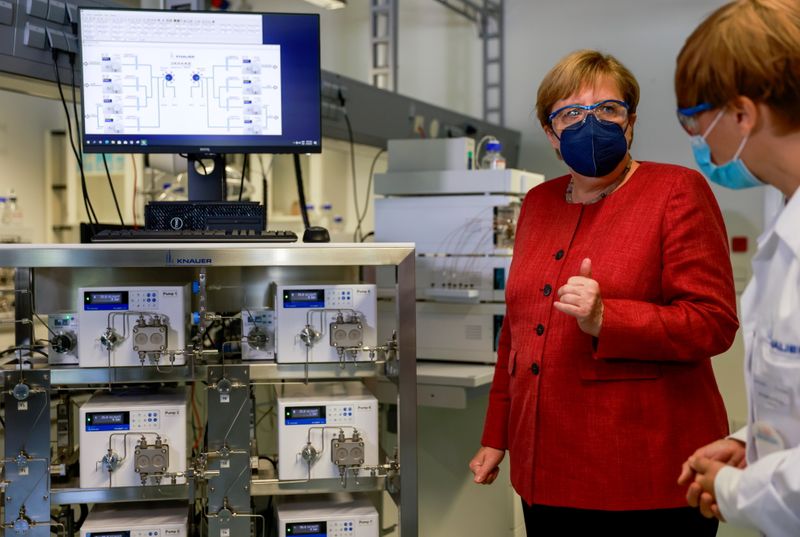BERLIN (Reuters) - Supply bottlenecks dampened German manufacturing activity in September, a survey showed on Friday, as factories reported a drop in new orders and output constraints.
IHS Markit's Final Purchasing Managers' Index (PMI) for manufacturing, which accounts for about a fifth of Germany's economy, stood at 58.4, slightly lower than a flash reading of 58.5, and down from 62.6 in August.
Factories in Europe's biggest economy have been humming along during the pandemic almost undisturbed by lockdowns that have impacted the services sector, and activity accelerated early this year on strong demand from the United States and China.
But shortages of intermediate goods like semiconductors and some raw materials have held back the sector, where companies worried that shortages will drag on into next year have started to report ebbing growth expectations.
Growth in new orders dropped to a 15-month low.
"Supply bottlenecks continue to drive up input costs and, in turn, put pressure on manufacturers to raise prices, which is acting as another headwind to growth," said Phil Smith, Economics Associate Director at IHS Markit.
"The rate of input price inflation looks like it might have peaked but is still running close to the fastest in the survey's history, leading to near-record numbers of goods producers to raise prices," he added. "Manufacturers' optimism towards the outlook is steadily ebbing away, down in September to its lowest for 13 months."
- Detailed PMI data are only available under licence from IHS Markit and customers need to apply for a licence.

To subscribe to the full data, click on the link below: https://www.ihsmarkit.com/about/contact-us.html
For further information, please phone IHS Markit on +800 6275 4800 or email economics@ihsmarkit.com
